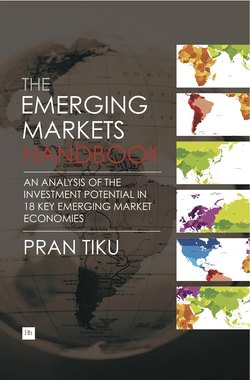Читать книгу The Emerging Markets Handbook - Pran Tiku - Страница 109
На сайте Литреса книга снята с продажи.
Political stability and governance
ОглавлениеChina ranks 124th out of 165 countries on the EIU’s political instability index for 2010, with only India ranking better in terms of stability among emerging markets. China’s one-party system contributes to this stability, but it does come at the cost of transparency and openness.
Having said that, recent corruption scandals involving top party leaders like Bo Xilai, and the New York Times expose on Wen Jiaboa’s family wealth, have struck a nerve with the Chinese people who remain frustrated with the unequal distribution of wealth and the privileges enjoyed by the families of top Communist Party officials. China’s new leader Xi Jinping has vowed to make the fight against corruption his number one priority. However, it is unlikely that the occasional campaign against corruption, without structural changes, will lead to long-term results.
There is constant speculation in Western media that China is slowly moving towards democracy. This is not a strong prospect any time soon as the majority of the population seem to be satisfied with the Communist Party’s handling of the economy, which has helped to lift millions out of poverty.
Below we list some of the factors that measure political risk and quality of governance.
China’s EIU political risk ranking has improved from 57 in 2005 to 54 in 2012.
China’s Alliant Political and Econ ranking has worsened from 49.88 in 2005 to 48.64 in 2012.
China’s Freedom from Corruption score has improved from 34 in 2005 to 35 in 2012.
China’s Regulation Freedom score has improved from 30 in 2005 to 46.4 in 2012.
China’s Freedom of Government score has worsened from 64.8 in 2005 to 54.8 in 2012.
